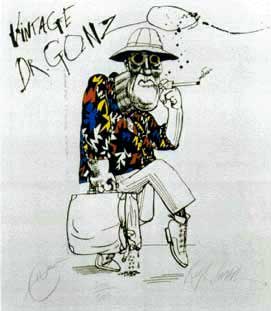Doh! A Deer...
 The only thing more asinine than demanding to be an anonymous source in an article about deer poaching is to be the editor that approved using the aforementioned person in an article. Trumping all of this would be the reporter who saw it fit to use the anonymous source's first name, identify him as having two children, and then list him among the residents of a sparse developed area on the outskirts of the city.
The only thing more asinine than demanding to be an anonymous source in an article about deer poaching is to be the editor that approved using the aforementioned person in an article. Trumping all of this would be the reporter who saw it fit to use the anonymous source's first name, identify him as having two children, and then list him among the residents of a sparse developed area on the outskirts of the city.True, seven poaching deer from woods belonging to the Police Benevolent Association can be a racy subject, especially if you're the one doing the poaching. But considering the penalties for such an offense would be limited to fines and the suspension of hunting privileges, the use of anonymous sourcing is hardly necessary, especially when the context allows anyone with a third-grade education to track that source down. In this case, anonymous sourcing simply detracts from an article that was otherwise somewhat interesting,
Castigating the reporter isn't really necessary in this case, seeing as though the article was undoubtedly written by a neophyte to the world of journalism. The problem is, this reporter just stumbled face-first into one of the crumbling pillars of journalism, without being corrected by the editor-on-duty.
Too often in modern journalism --especially in the higher echelons --the use of anonymous sources is blurred with off-the-record information. This is not to say that there isn't a time and a place for such tools, rather they should be used sparingly and in extreme situations where they help build a story, not deconstruct it.
 Some very well-known reporters these days have made some pretty outrageous and fallacious claims in using anonymous sources. One who comes to mind is Judith Miller, the hack reporter-turned-journalistic martyr, who wrote an April 2003 article entirely based on anonymous sources alleging that coalition forces had indeed found the elusive weapons of mass destruction cache in Iraq. Guess these sources were wrong, eh?
Some very well-known reporters these days have made some pretty outrageous and fallacious claims in using anonymous sources. One who comes to mind is Judith Miller, the hack reporter-turned-journalistic martyr, who wrote an April 2003 article entirely based on anonymous sources alleging that coalition forces had indeed found the elusive weapons of mass destruction cache in Iraq. Guess these sources were wrong, eh?Simply and succinctly put, the rule governing the use of anonymous sources in reporting goes as follows: don't use them. If a person isn't willing to put their name on something or give a compelling reason why, chances are pretty good they're not saying anything important; either or they've watched All the Kings Men a few too many times.
Granted, there is a shoe-string budget over on Lake Avenue, thanks to the penny-pinching misers at the Journal Register Company; minor errors of spelling or grammar can be expected. But for any editor to allow such a mindless breach of journalistic common sense is a bit befuddling, especially since the paper DOES have a city editor, plus at least three copy editors on duty at any given time.
 Then again, this is The Saratogian, a publication that seems to successfully defy all principles of logic. And yet for some inconceivable reason, people continue to shell out two quarters for such tripe. Then again, there are some readers who are getting pretty darn fed up with this schtick.
Then again, this is The Saratogian, a publication that seems to successfully defy all principles of logic. And yet for some inconceivable reason, people continue to shell out two quarters for such tripe. Then again, there are some readers who are getting pretty darn fed up with this schtick.


1 Comments:
God, I'm glad you finally wrote something. I was starting to think my old 486 Compaq was faster at churning out copy while unmanned in my parent's basement. Get off the Rum and get with the work. Slacker.
Post a Comment
<< Home